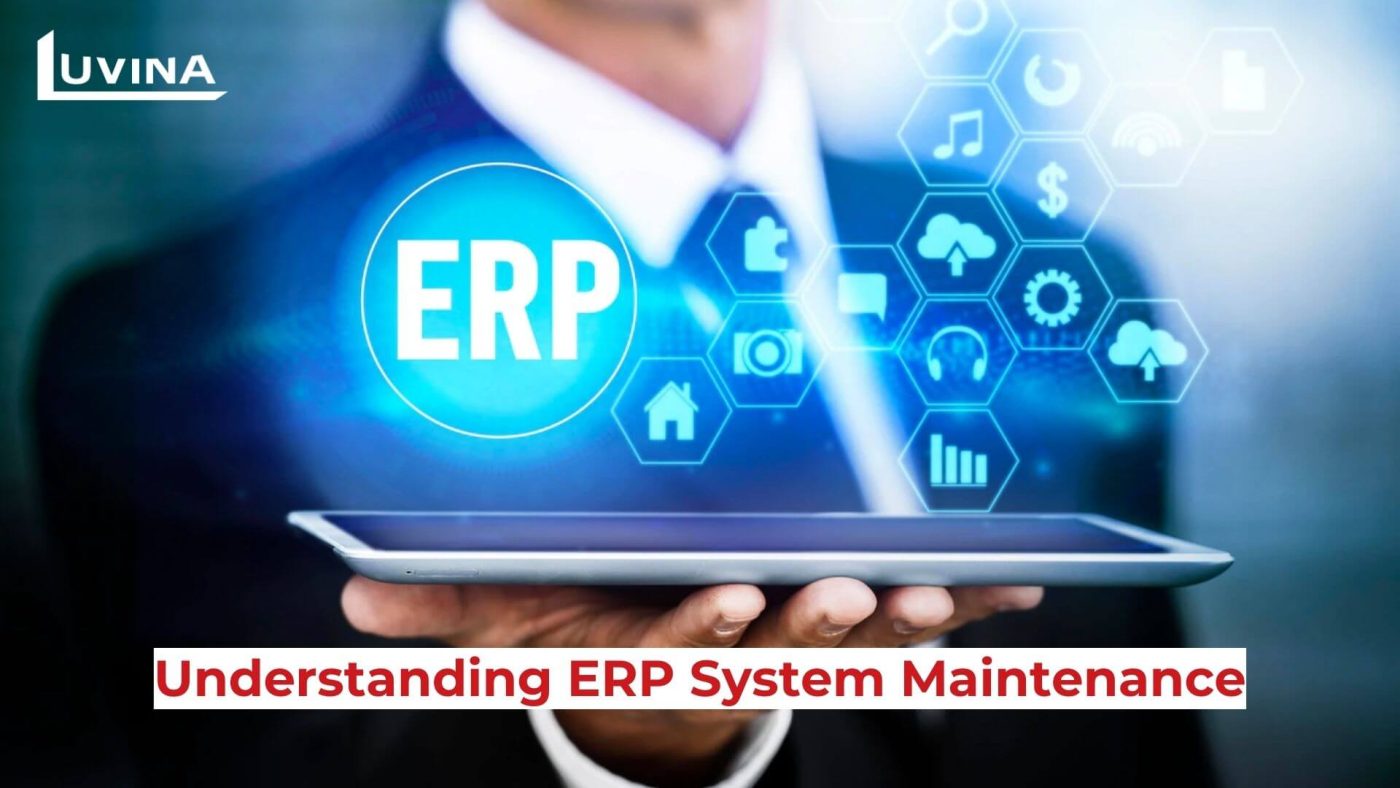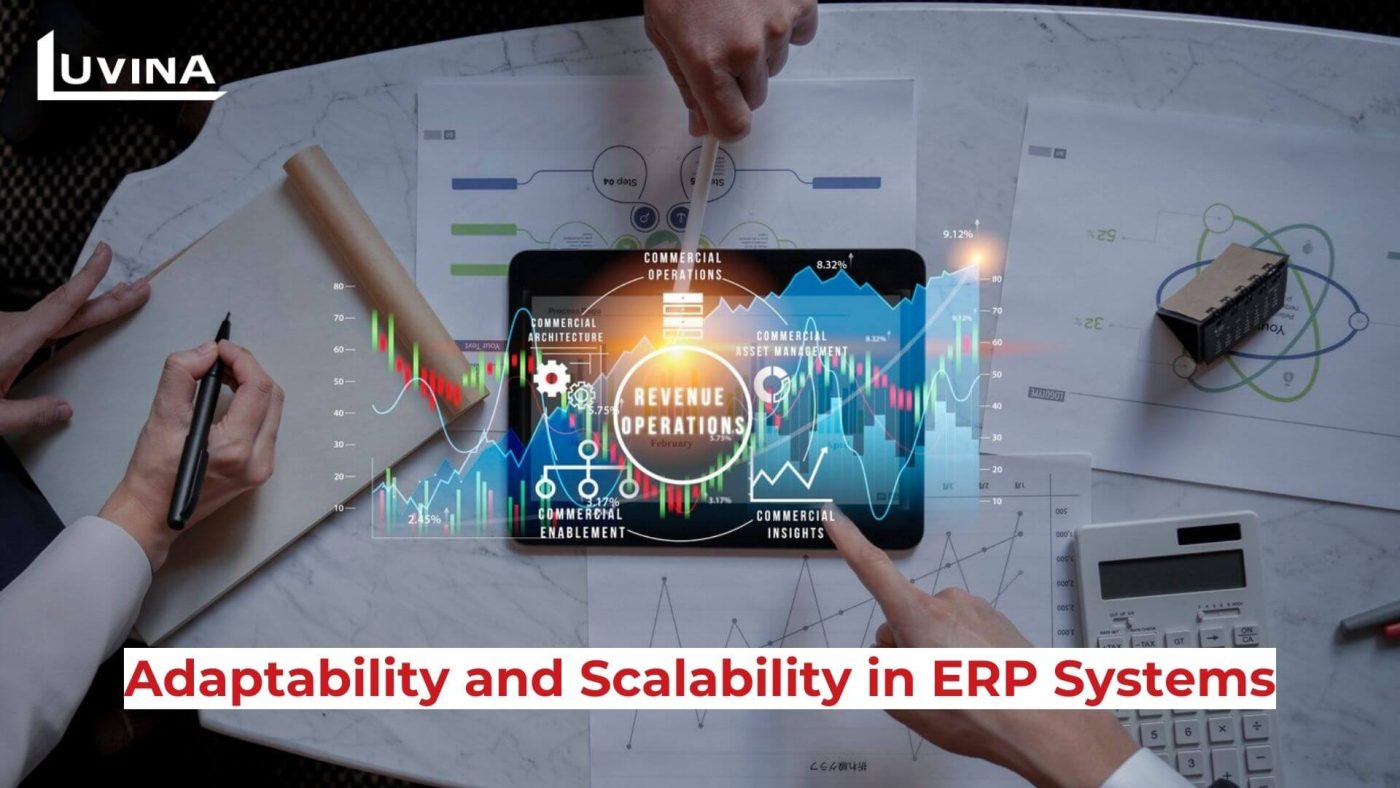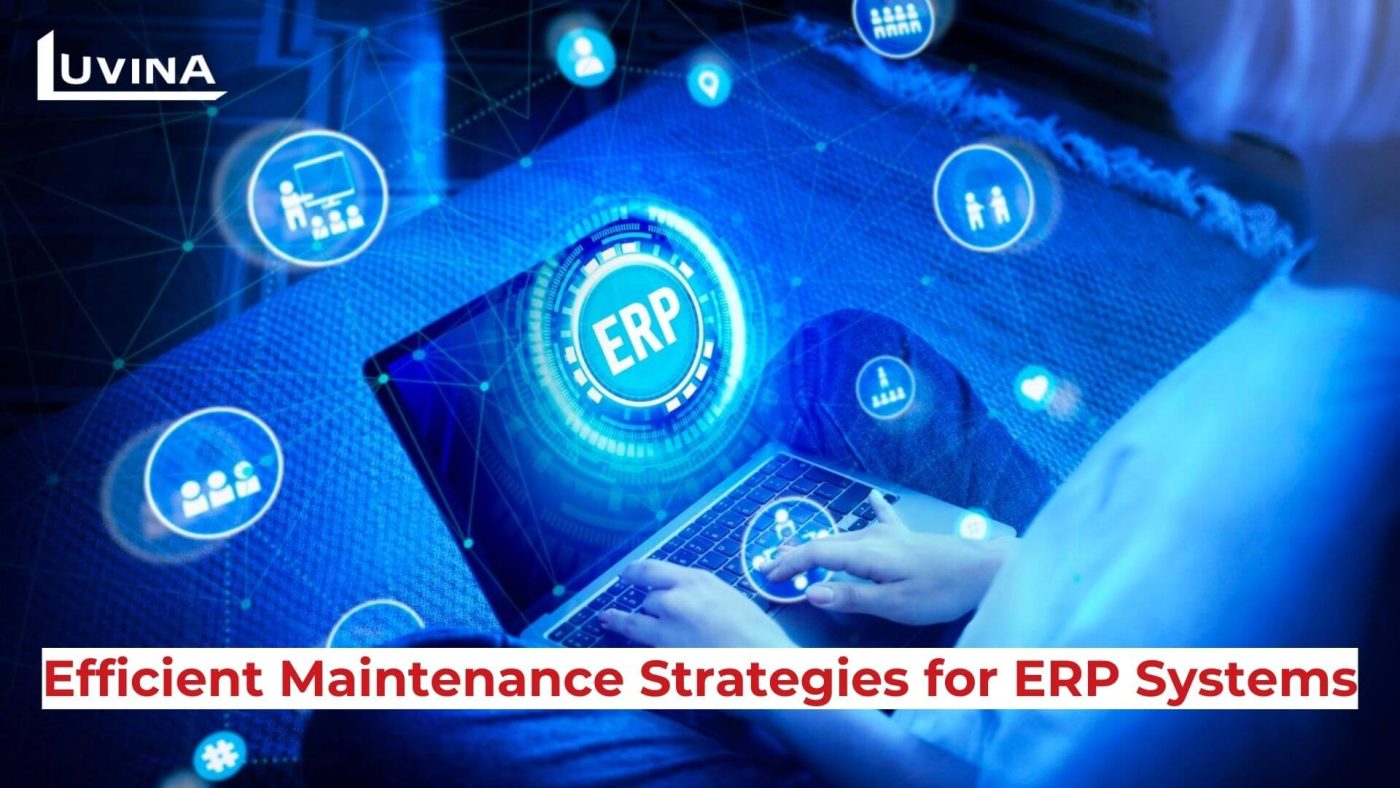ERP (Enterprise Resource Planning) system maintenance involves the ongoing activities necessary to ensure the smooth operation, efficiency, and effectiveness of an ERP system throughout its lifecycle. Here’s a breakdown of ERP system maintenance.

Importance of ERP System Maintenance
1. Operational Continuity
Operational continuity is crucial for businesses to maintain uninterrupted operations and ensure the smooth functionality of critical business processes, especially during unforeseen events or disruptions. It involves creating strategies, protocols, and systems to safeguard against and mitigate potential risks that could disrupt or halt operations. This proactive approach helps businesses maintain their services, meet customer demands, and uphold their commitments even in challenging circumstances.
2. Data Integrity and Security
Data integrity and security are paramount in safeguarding sensitive business information from unauthorized access, loss, or corruption. This involves implementing robust measures such as encryption, access controls, firewalls, regular backups, and security protocols to ensure that data remains accurate, consistent, and accessible only to authorized personnel. Protecting data integrity and security not only maintains trust with customers but also ensures compliance with data protection regulations, mitigates risks associated with data breaches, and safeguards the reputation and operational continuity of the business.
3. Adaptability and Scalability
Adaptability and scalability are vital aspects of an ERP (Enterprise Resource Planning) system.

Adaptability ensures that the system can easily accommodate changes in business processes, industry regulations, or technological advancements. An adaptable ERP system can swiftly adjust to new requirements, integrating new functionalities or altering existing ones without extensive disruptions.
Scalability is crucial for the system to expand or contract efficiently based on the organization’s growth or changes in demand. A scalable ERP system can handle increased data volume, user load, or additional modules without compromising performance or stability. This scalability allows the ERP to grow alongside the organization, providing the necessary support as the business evolves.
Together, adaptability and scalability empower an ERP system to remain relevant, efficient, and capable of meeting the dynamic needs of an organization, whether it’s adapting to new workflows or seamlessly accommodating business growth.
4. Cost-efficiency
Cost efficiency in an ERP system extends beyond the direct expenses of implementation and maintenance. By mitigating the risks of system downtime or major failures, it safeguards against potential financial losses associated with disruptions in operations or productivity.
Investing in a reliable ERP system with robust maintenance and monitoring mechanisms reduces the likelihood of unexpected breakdowns or operational interruptions. This prevention not only saves on repair costs but also prevents revenue loss due to halted operations. Additionally, a system that minimizes the risk of errors or inefficiencies can save considerable resources that might otherwise be spent rectifying mistakes or dealing with compliance issues.
Tips for Efficient ERP System Maintenance
Maintaining your ERP system effectively translates to a smoother workflow, better data security, and ultimately, a maximized return on investment. Here are some key tips to keep your ERP humming along:

1. Planning and Proactiveness
Planning and proactiveness are key elements in effective maintenance strategies for an ERP system:
- – Developing a Maintenance Plan: Defining clear maintenance goals, scope, and budget helps in outlining the roadmap for keeping the ERP system updated and optimized. Scheduling regular updates, backups, and performance checks ensures that the system runs smoothly and remains secure. This proactive approach minimizes the risk of unexpected issues and allows for better resource management.
- – Anticipating Changes: Staying informed about industry trends, regulations, and upcoming technological advancements is crucial. By anticipating changes, organizations can plan for necessary adaptations or system upgrades in advance. This proactive stance prevents the ERP system from becoming outdated and ensures it remains aligned with evolving business needs and industry standards.
- – Investing in User Training: Providing comprehensive training to the team using the ERP system is essential. A well-trained team not only uses the system effectively but can also identify potential issues or areas for improvement. Investing in continuous user training ensures that employees are equipped with the skills to maximize the system’s potential and contribute to its ongoing maintenance and optimization.
By integrating these strategies into the ERP maintenance plan, organizations can proactively address potential challenges, adapt to changes, and maximize the efficiency and longevity of their ERP systems.
2. Prioritization and Optimization
Prioritization and optimization play a critical role in maintaining an efficient ERP system:
- – Prioritizing Critical Issues: It’s essential to focus on resolving critical issues such as security vulnerabilities and bugs that impact the system’s core functionalities and user productivity. Addressing these issues promptly ensures the stability and reliability of the ERP system, prioritizing functionality over cosmetic enhancements.
- – Optimizing Performance: Regularly reviewing system performance metrics allows for the identification of bottlenecks. By considering resource allocation, database tuning, and code optimization techniques, organizations can enhance the system’s efficiency and responsiveness. This optimization ensures that the ERP system operates at its best capacity, delivering optimal performance.
- – Standardizing Workflows: Enforcing consistent data entry practices and reporting procedures helps maintain data integrity and simplifies ongoing maintenance tasks. Standardization streamlines processes reduces errors, and ensures that the ERP system functions smoothly and efficiently. It also facilitates easier troubleshooting and maintenance in the long run.
By implementing these strategies, organizations can effectively prioritize critical elements, optimize system performance, and standardize workflows, leading to a more efficient and reliable ERP system.
3. Security and Data Protection
These security measures are fundamental for ensuring the integrity and protection of an ERP system:
- – Robust Security Measures: Regular updates to user access controls, patching security vulnerabilities, and conducting routine security audits are crucial. They fortify the system against potential threats, ensuring that the ERP system remains resilient and secure.
- – Regular Data Backups: Maintaining secure backups of critical data safeguards against potential data loss or system disruptions. This practice ensures that even in the event of a system failure or cyberattack, essential data can be recovered, minimizing operational disruptions.
- – User Activity Monitoring: Tracking user access and actions is essential for identifying any suspicious activity that could signify security breaches or misuse of the ERP system. Monitoring user behavior helps in early detection and mitigation of potential security threats.
These security measures collectively contribute to bolstering the resilience of an ERP system, safeguarding sensitive data, and ensuring uninterrupted functionality.
4. Collaboration and Communication
Fostering collaboration and communication are essential for maintaining an effective ERP system:
- – Feedback Loop: Encouraging user feedback helps in understanding user experiences, identifying pain points, and pinpointing areas that require improvement. This loop aids in continuous improvement and aligns the ERP system with user expectations.
- – Open Communication Channels: Clear and efficient communication among IT teams, end-users, and management ensures that issues are reported promptly and resolved effectively. Transparent communication helps in addressing concerns and streamlining the resolution process.
- – Data Analytics Utilization: Leveraging reporting tools and data analytics enables the identification of usage patterns, potential issues, and areas for enhancement. Analyzing this data provides insights to optimize system performance and enhance user experience.
5. Additional Tips
- – Utilize maintenance tools: Consider dedicated maintenance software for updates, patches, and data management.
- – Document your system: Maintain accurate and up-to-date documentation of system configurations, processes, and troubleshooting procedures.
- – Collaborate with your vendor: Leverage your ERP vendor’s support services for troubleshooting, updates, and expertise.
- – Stay informed: Keep yourself updated on industry best practices, new technologies, and security threats related to ERP systems.
Effective ERP system maintenance is crucial for businesses relying on these systems to run their operations smoothly. It ensures that the ERP system remains reliable, secure, and aligned with business objectives, allowing organizations to maximize their efficiency and productivity.
Conclusion
As businesses evolve in today’s dynamic environment, the meticulous maintenance of an ERP system emerges as a linchpin for sustained success. ERP system maintenance, encompassing operational continuity, data integrity, adaptability, and cost-efficiency, ensures an organization’s resilience in the face of technological shifts and market dynamics. Proactive strategies, meticulous security measures, and user-focused approaches form the cornerstone of a robust maintenance plan, fostering continuous optimization and alignment with ever-evolving business needs.
Ready to elevate your organization’s efficiency and resilience? Contact us today to discover how our tailored ERP maintenance solutions can fortify your systems and drive sustained growth in the rapidly evolving business landscape.
Related Posts:









Read More From Us?
Sign up for our newsletter
Read More From Us?
Sign up for our newsletter